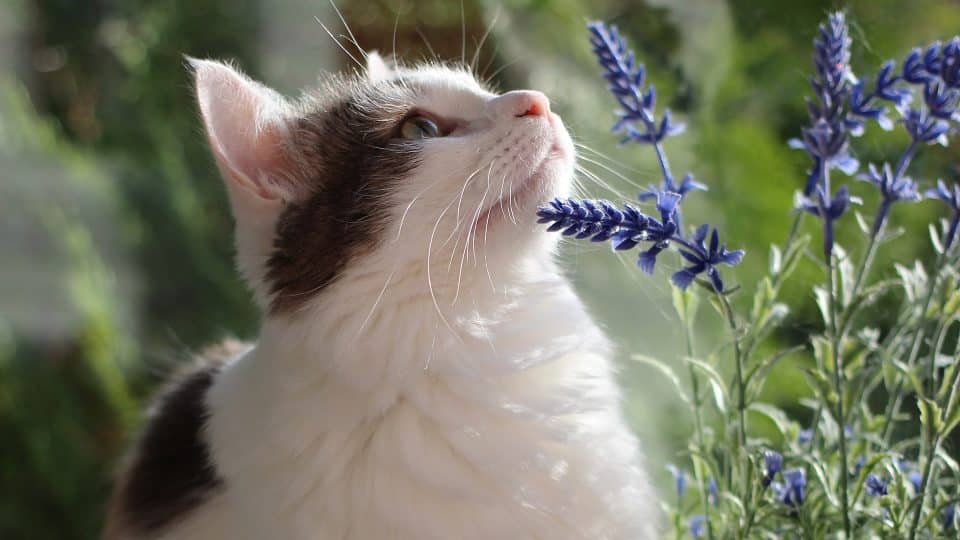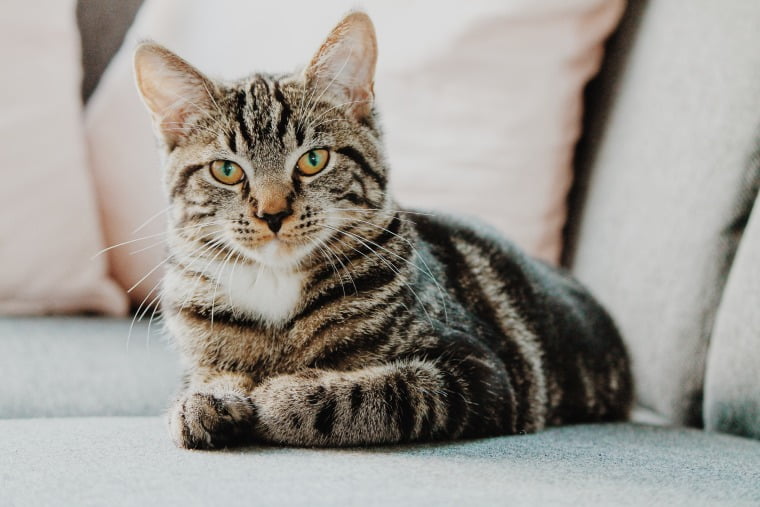Which Essential Oils are Safe for Cats?

Essential oils have become increasingly popular in recent years, touted for their various benefits ranging from relaxation and stress relief, to natural remedies for common ailments. However, while essential oils may be beneficial for humans, it is important to recognize that they can be potentially harmful to our furry feline friends. As pet owners, it is crucial to know which essential oils are safe for our cats to avoid any potential harm or health complications.
In this article, we will discuss the basics of essential oils and their potential effects on cats. We will also provide a comprehensive list of essential oils that are safe for use around cats and those that should be avoided at all costs.
Essential Oils that are Safe for Cats
There are several essential oils that are safe to use around cats. Below is a list of some of the most popular and beneficial oils, along with a detailed description of each oil and its benefits:
Lavender Oil
Lavender oil is known for its calming and soothing properties. It can help reduce stress and anxiety in cats and promote relaxation. It is also beneficial for its antibacterial and antifungal properties, which can help fight off infections and promote healing.
Frankincense Oil
Frankincense oil is a powerful anti-inflammatory that can help reduce inflammation and pain in cats. It also has antiseptic and immune-boosting properties, which can help fight off infections and support overall health.
Copaiba Oil
Copaiba oil is an excellent natural pain reliever and anti-inflammatory. It can help reduce pain and inflammation in cats, especially those suffering from arthritis or other joint issues. It is also beneficial for its antifungal and antibacterial properties, which can help fight off infections.
Helichrysum Oil
Helichrysum oil is a potent anti-inflammatory and pain reliever. It can help reduce inflammation and pain in cats, especially those suffering from arthritis or other joint issues. It is also beneficial for its antibacterial properties, which can help fight off infections.
Cardamom Oil
Cardamom oil is a natural antiseptic and expectorant. It can help fight off infections and promote respiratory health in cats. It is also beneficial for its digestive properties, which can help soothe upset stomachs and promote healthy digestion.
Cedarwood Oil
Cedarwood oil is a natural insect repellent and can help keep fleas and ticks at bay. It also has calming properties that can help reduce stress and anxiety in cats.

How to Use Essential Oils Safely Around Cats
It is important to note that while these essential oils are generally safe for cats, they should still be used with caution. Here are some tips for using essential oils safely around cats:
- Always dilute essential oils before use. Use a carrier oil such as coconut or jojoba oil to dilute the essential oil.
- Using diffusers can be a convenient way to disperse a few drops of essential oils throughout a large room or a living space. Also make sure the area is well ventilated for proper dispersion and diffusion of the oil.
- Use essential oils in moderation. Only use a few drops at a time, and avoid using oils on a daily basis.
- Always monitor your cat’s behavior and reactions to the essential oil. If your cat shows signs of discomfort or adverse reactions, stop using the oil immediately.
- Keep essential oils out of reach of cats, as they can be toxic if ingested.
- Avoid using essential oils around pregnant cats, kittens, or cats with underlying health conditions.
By following these guidelines and using essential oils safely, you can help improve your cat’s health and well-being without putting them at risk.
What to do if your Cat swallows Essential Oils
If your cat accidentally ingests essential oils, it’s important to act quickly and seek veterinary attention. Essential oils can be toxic to cats, even in small amounts, and can cause a range of symptoms, including vomiting, diarrhea, lethargy, difficulty breathing, and even organ damage.
Here are the steps you should take if your cat ingests essential oils:
- Call your veterinarian or a pet poison control hotline immediately. The ASPCA Animal Poison Control Center (APCC) can be reached at (888) 426-4435.
- Do not induce vomiting unless instructed to do so by a veterinarian or poison control specialist.
- If possible, bring the bottle or container of the essential oil with you to the vet. This will help the vet determine the type and amount of oil that your cat ingested, which can guide their treatment.
- Follow your vet’s instructions carefully. Depending on the severity of your cat’s symptoms, they may need to be hospitalized for monitoring and treatment. Treatment may include supportive care, such as intravenous fluids and medications to manage symptoms, as well as decontamination measures, such as activated charcoal to absorb any remaining toxins in the stomach.
- Prevent future accidents by storing essential oils securely and out of reach of your cat. Consider using child-proof caps or keeping oils in a locked cabinet. If you use a diffuser, make sure it is in a safe location where your cat cannot knock it over or access it.
Bear in mind that even “safe” essential oils are dangerous when ingested, or taken in high concentrations.

Essential Oils that are NOT Safe for Cats
Below is a list of common essential oils that are toxic to cats:
- Tea Tree Oil – Tea tree oil is a common ingredient in many household and personal care products due to its antibacterial and antifungal properties. However, tea tree oil is toxic to cats and can cause lethargy, weakness, tremors, and even coma.
- Eucalyptus Oil – Eucalyptus oil is often used in aromatherapy and can be found in many cough and cold remedies. However, eucalyptus oil is toxic to cats and can cause vomiting, diarrhea, and depression.
- Peppermint Oil – Peppermint oil is a popular essential oil used for its refreshing scent and digestive benefits. However, peppermint oil is toxic to cats and can cause vomiting, diarrhea, and central nervous system depression.
- Citrus Oils – Citrus oils, such as lemon, orange, and grapefruit, are commonly used in cleaning products and have a refreshing scent. However, citrus oils are toxic to cats and can cause vomiting, diarrhea, and photosensitivity.
- Cinnamon Oil – Cinnamon oil is often used for its warm and spicy scent and has been shown to have anti-inflammatory properties. However, cinnamon oil is toxic to cats and can cause vomiting, diarrhea, and liver damage.
It is important to note that this is not an exhaustive list of essential oils that are toxic to cats. Other essential oils, such as clove, thyme, and wintergreen, can also be dangerous to cats.

Safe Alternatives to Essential Oils for Cat Owners
While essential oils can provide benefits for cats, some cat owners may prefer to use alternative remedies or products. Here are some safe alternatives to essential oils for cat owners:
- Natural Remedies:
- Aloe Vera: This plant has anti-inflammatory properties and can be used to soothe skin irritations and promote healing.
- Chamomile: Chamomile tea can be used to help calm cats and relieve stress and anxiety.
- Lavender: Fresh or dried lavender can be used to make a soothing spray for cats. Lavender also has calming effects and can help promote relaxation.
- Non-Toxic Products:
- Non-toxic Cleaning Products: Cats are sensitive to many household cleaning products, so it’s important to use non-toxic options. Look for products that are labeled as pet-safe or natural.
- Cat-Friendly Shampoos: When bathing your cat, use a shampoo that is specifically designed for cats. Look for shampoos that are fragrance-free and made with natural ingredients.
Conclusion
In conclusion, while essential oils can provide benefits for cats, it’s important to use them safely and appropriately. Some essential oils are safe for cats, while others can be toxic and harmful. It’s important to research each oil and consult with your veterinarian before using them around your cat.
If you do choose to use essential oils, make sure to use high-quality oils and dilute them properly. Never apply undiluted oils directly to your cat’s skin or fur, and avoid using diffusers or other products that could expose your cat to too much oil.
If you prefer to use alternative remedies or non-toxic products, there are plenty of safe options available. Aloe vera, chamomile, and lavender can all provide benefits for cats, while non-toxic cleaning products and cat-friendly shampoos can help keep your cat healthy and happy.


